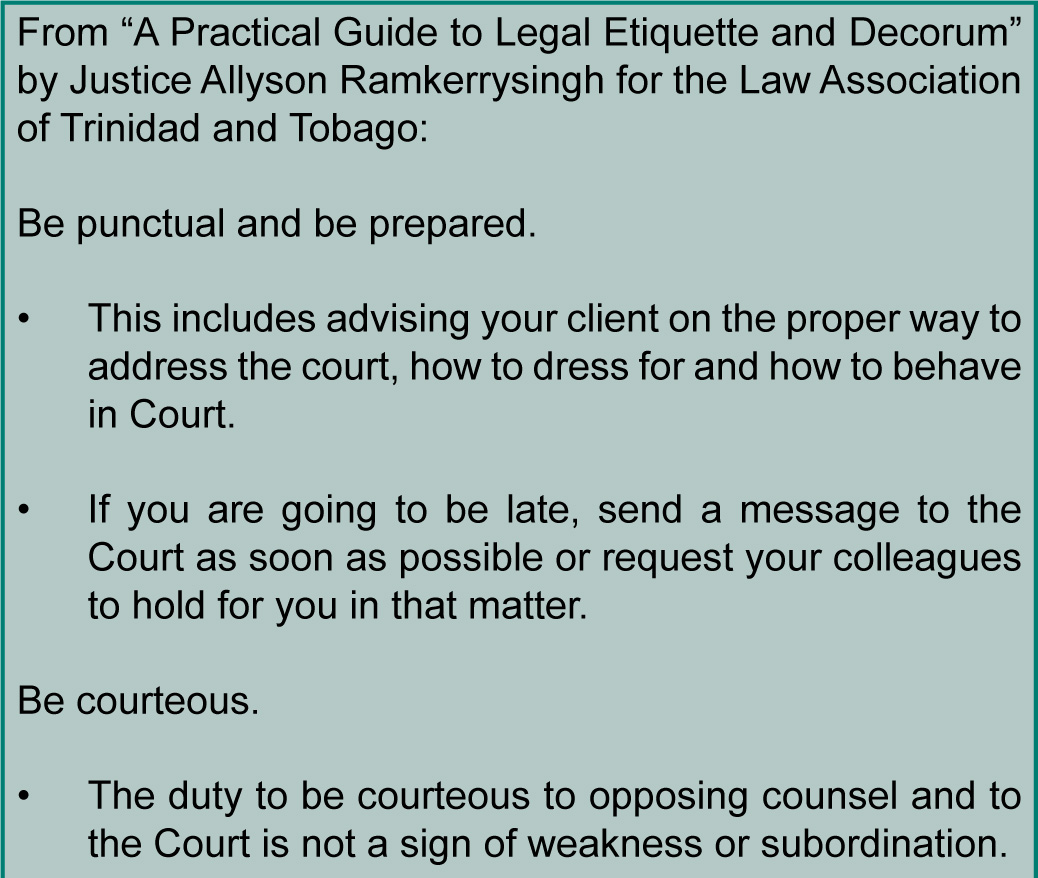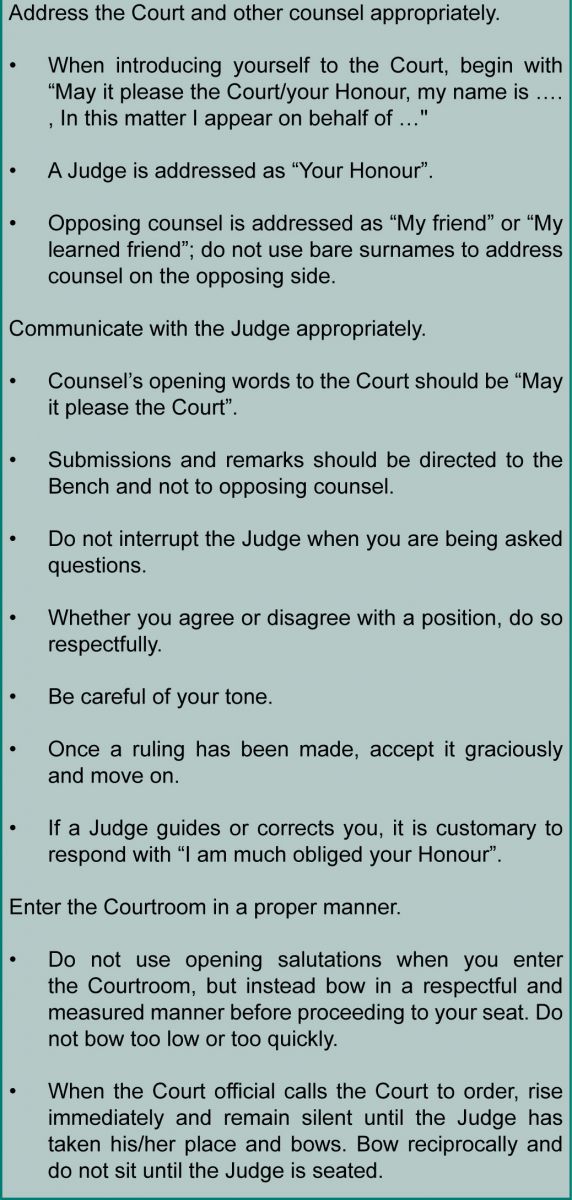Court Etiquette and Public Confidence
In 2004, the Indianapolis Bar Association conducted an online survey1 to examine the public image of attorneys and the legal profession. 43.1 per cent of respondents2 had a negative impression of lawyers. Lawyers were described by respondents as “not trustworthy”, “greedy”, “arrogant”, “unethical” and “expensive”. By 2013, a public survey3 on professional public esteem of professionals in the United States placed lawyers at the bottom of the barrel. A mere 18 per cent of survey respondents thought that lawyers contributed “a lot” to American society’s well-being, as compared to other professionals such as the military, teachers, and artists. Such statistics leave one wondering what the public response would be if a similar survey was conducted in Singapore.
Surveys which stop short of telling us something meaningful about the underlying factors driving the reported public opinion inevitably suggest that the diminished public status of the role of a lawyer is a result of declining standards of professionalism at the Bar. This does not quite paint a true picture. The pressures of legal practice have intensified over the years, not least because of the rise of a culture of consumerism. Consumerist attitudes have reduced the ability of clients to value the skills and expertise of professionals and craftsmen; so too the global trend of commoditisation of services which has reduced a lawyer’s craft to simply being just another service provider from whom “value for money” is expected.

Against the tide of this cultural force, Justice Andrew Phang, as he then was, observed in Law Society of Singapore v Tan Buck Chye Dave4 that: “The practice of law is not merely a business, although, on a practical level, it is undoubtedly the case that it is simultaneously a form of livelihood. It is also a noble calling that, in the final analysis, serves the public. The legitimacy, therefore, of the profession in the eyes of the public is of the first importance.”5 Nowhere is that legitimacy under greater scrutiny than in the Courtroom.
Two incidents involving the poor conduct of advocates in the Courtroom standout in recent months. In August, the press ran a report on a lawyer who was criticised for offensive remarks made to the victim of a molestation offence during a criminal trial. It was mentioned that the lawyer had in the past been found liable by a disciplinary tribunal for using expletives in the Courtroom. In Re Ang Jian Xiang and others,6 the High Court chastised a supervising lawyer who was late for a hearing of part-call applications for his practice trainees, and issued a reminder that “one has to be early in order to be on time”.
These episodes serve as a reminder that the basic and best traditions of the legal profession are not to be found in rule-books, but in the role-modelling of professional standards demonstrated by many lawyers around us which may go unreported, but hopefully not unnoticed.
Since most of these traditions are extensions of common social graces: being on time, dressing appropriately, being courteous to peers and seniors, they are vulnerable to the malaise of “being out of sight and out of mind”. We leave you with some pointers on Court etiquette and decorum from a Judge from the other side of the world and, as a reward, a crossword puzzle which we have no doubt you will ace.
Representation and Law Reform Department
The Law Society of Singapore


Crosswords! – Just how courteous are you?
1. The presiding judge is always addressed as “Your ______”.
2. Your opposing counsel is also known as your “______ Friend”
3. Please ______ when speaking to the Bench.
4. You should ______ when entering or leaving the Courtroom while Court is in session.
5. Always be ______ for your Court sessions.
6. Do ______ both the Court and opposing counsel if you find yourself running late.
7. When late, do ______ and ______ as to why you were held up.
8. If unwell, always get a fellow lawyer to ______ on your behalf.
9. Be ______ for hearings. Always have your ______ and research on hand.
Hint: If you encounter any difficulties, a drink and discussion with a learned friend in the Bar Room is highly recommended.

Notes
1 A Survey of Professionalism and Civility, Tim A. Baker, Indiana Law Review, Volume 38, 1305-1316, at pp. 1306.
2 There were 459 respondents.
3 Pew Research Center Survey 2013. See article titled “Public Esteem for Military Still High”, 11 July 2013. Source: http://www.pewforum.org/2013/07/11/public-esteem-for-military-still-high/, accessed on 6 October 2016.
4 [2007] 1 SLR(R) 581.
5 At [16].
6 [2016] SGHC 92.




